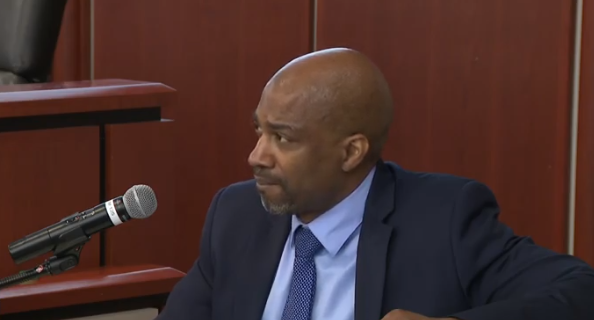The Politics of the Tax Incentive Task Force
Listen to audio version of this article

NEWARK - There really isn't all that much debate about the state helping spur business development, especially in economically distressed cities.
But the question soon becomes if the tax credits granted are truly necessary and if they are used properly. And don't forget about the influence of politics either.
The state comptroller said in a report that $11 billion in tax credits awarded by New Jersey may not have been monitored properly.
Gov. Phil Murphy quickly convened a task force to look into the matter. Its first meeting was in March; its second was Thursday.
It is obviously an obligation of the governor to raise a stink if a grant program goes off the rails. But no one should ignore the political considerations.
The tax incentive program in question was long championed by then-Governor Chris Christie who considered it evidence that unlike Democrats, Republicans want to help business prosper. You know that Murphy would love to poke holes in an initiative Christie prized.
Then, there's internal Democratic politics.
The glare at the moment is on tax incentives granted to help businesses relocate in Camden, which is the political power base of Democrat George Norcross. Some of the companies in the program are tied directly to Norcross or his family. A brother of George represents South Jersey in the House.
Party differences aside, the Norcross bunch and their acolytes - some would put Senate President Steve Sweeney in that group - had a cozy relationship with Christie. They don't have one with Murphy.
So it was hardly surprising that while Thursday's hearing at the Rutgers University School of Law bordered on extreme tedium, the task force seemed intent on exploring if companies moving to Camden may have gotten improper assistance.
There are varying parts of the state's incentive program, which is formally known as the Economic Opportunity Act, and which passed in 2013. But the key part for the purpose at hand are tax credits companies receive for not moving out of state. The tax benefits coincide with the number of New Jersey jobs they, in a sense, save.
This by definition is not at all cut and dry. How does the state Economic Development Agency know for sure that a company may move to Virginia? It sure seems like something someone could, shall we say, fake.
Officially a company seeking tax credits because it may move must show the state that it has an out-of-state location that is available, suitable to its needs and bona-fide.
Yet, the task force offered evidence from a "whistleblower" at the state's EDA who filed suit that said something very different. For instance, the suit maintained that some prospective out-of-state sites on company applications were "simply not real." In one amusing anecdote the suit maintained that a furniture company listing North or South Carolina as a landing spot was believed just because many furniture businesses are located in the Carolinas. The EDA actually prevailed in the suit, but the task force noted that the jury also found that the plaintiff acted in good faith, as opposed presumably with malice.
Later, evidence was presented that alleged a number of companies - some tied to Norcross - sought and got tax credits to move to Camden rather than Philadelphia. That was in 2016. But a year before, there were actually newspaper articles reporting that some of the firms would move into a new tower on the Camden waterfront. You see the problem - they already had decided to stay in New Jersey, but still allegedly sought help to keep them from moving.
Things have been muddied even more by a New York Times story this week that identified one, Kevin Sheehan, a lawyer with a firm headed by George Norcross' brother, Phil, as a man who played a key role in helping to write the pertinent legislation.
Tim Lizura, the former COO of the EDA, was asked if he recalled Sheehan revising a particular part of the bill. He said he did not.
But Lizura, who was with the EDA for more than 20 years, defended his old agency, saying that the tax incentive program brings far more revenue to New Jersey than it costs in tax credits.
"I am proud of what we did," he said.





